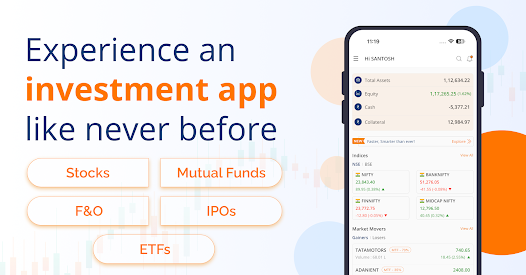Which One Suits You Intraday Trading vs. Long-Term Investing?
Though there are many ways to create money in the stock market, the decision between long-term investing and intraday trading will rely on variables, including risk tolerance, financial goals, and market understanding. Some investors choose a consistent, long-term approach, while others want rapid gains from regular trades. Knowing the variations between these two approaches will enable you to decide what kind of investment to do.

Know Intraday Trading:
Buying and selling stocks inside the same trading day is the essence of intraday trading. Leveraging price swings, traders close all positions prior to market closing. This method calls for continual observation, fast decisions, and technical analysis knowledge. Because stocks can be somewhat erratic, traders sometimes rely on stop-loss rules to reduce risks. Although rewards can be great, intraday trading is appropriate for seasoned investors who can manage market swings, as risks are also great.
The Value of Extended Investing:
Investing long term calls for strategy and patience. Purchasing stocks, mutual funds, or equity delivery shares, investors keep them for years and gain from compounding profits and dividend payouts. Long-term investors rely on fundamental analysis, corporate performance, and economic trends to make investment decisions unlike intraday traders who concentrate on short-term price swings. Long-term investments are less affected by market volatility. Hence, this approach is perfect for people who would rather have stability than regular market movement.
Why should one long term invest in ETFs?
Exchange-traded funds (ETFs) are an excellent choice for people who want a varied investing alternative. Investing in ETFs exposes a mix of equities, therefore lowering the risks involved in making individual company investments. For passive investors wishing to profit from the long-term expansion of the stock market without actively managing their portfolios, ETFs track market indices and sectors and provide a practical choice.
Which method—risk against reward—is better?
Though it bears great risk, intraday trading presents the possibility for fast gains. Traders must make split-second choices and keep current on market developments. If a trade fails fast, losses can mount up rapidly. Hence, risk management is absolutely vital. Conversely, long-term investing reduces the effect of transient market swings by letting investments increase consistently over time. For individuals looking for money creation with less stress, this is, therefore a preferable solution.
Tools to Aid in Decision-Making:
Investors who want systematic investment plans can evaluate possible returns over time using an SIP calculator. An MTF calculator lets people interested in leveraged trading find the margin needed for better profits. Based on financial goals and personal risk tolerance, both instruments can help one make wise investment selections.
Choosing the Correct Action:
Whether one prefers long-term investing or intraday trading will rely on personal inclination. Intraday trading would fit you if you can manage risks and appreciate active market participation. If you want consistent wealth building, nevertheless, investing in ETFs for diversification or equities delivery stocks could be more suited. By means of a SIP calculator and an MTF calculator, you can further direct yourself in choosing an investment strategy fit for your objectives. Maximizing gains in the stock market depends on having a clear plan regardless of your choice for long-term growth or rapid trades.